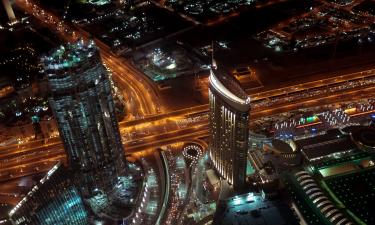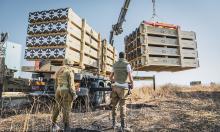Taliban 2021: A new geopolitical chapter?
20 years on, trillions of dollars spent and in August 2021 we see a scramble at an airport by desperate people trying to board military aircraft. Vietnam, 1970s? No, Kabul, 2021
While there are those who today are gloating and rubbing their hands in glee at the utter humiliation of the United States of America and its NATO Poodles, let us remember that we are dealing with serious things and let us remember that in times of crisis, as we have seen with Covid, we have to come together. So this is not a time for gloating, it is time for solutions. Whether those who take decisions are up to the task is another question.
Let us not forget how this started
But for a start let us not forget to draw the time line at the beginning. Afghanistan had a progressive, inclusive government which respected women’s rights, and which built schools for boys and girls to go to, hospitals, was improving its healthcare network, was implementing free and good public services. Then someone said “I know! Let’s destabilize the country completely and launch an Islamist movement to attack the soft underbelly of the Soviet Union”. So money from Saudi Arabia (always ready to please its bedmasters) was used to fund religious schools in Pakistan which filled up with mainly Pashtun students (from both sides of the frontier with Afghanistan) and a radical form of Wahhabist (expansionist) Islam was launched. Seeing what was coming, the Soviets decided to back the progressive government (which had asked for their help) and walked straight into a trap masterminded by who else? The Queen of intrigue, the good old US of A.
The Mujaheddin movement, fired up by Islamist discourse and manned by mountain people, saw the Soviet armed forces move out within a decade and the thank-you note to Washington was to morph into the Taliban movement.
So let us not forget where and how this began. Let us also not forget that twenty years ago, many people, myself included to be honest, saw no alternative for the West other than to invade Afghanistan because it was harbouring Al-Qaeda and the September 2001 attacks in the USA were sufficiently shocking to galvanize and orchestrate world support, and again, myself included at the time. Where they soon lost my support was when I saw a total disregard for human life and property and a total absence of responsibility, in strafing homes and bombing wedding parties and the like. And finally twenty years ago, some were commenting, myself included, that the Taliban were not defeated militarily, they just melted away into the mountains and waited.
An orgy of violence and a collapse in the credibility of NATO foreign policy
Many of us witnessed an outrage in international law and a collapse in the credibility of their foreign policy when two years later, a savage attack was launched on Iraq outside the auspices of international law, based on lies and the childishness of western leaders. And after this, more of the same when the West cavorted with terrorists in Libya, again breached international law and then sided with takfiri forces in Syria and blamed Russia for standing up for the government of al-Assad, which most Syrians back and support.
Today, twenty years after this cycle began (and let us not forget Kosovo and Yugoslavia beforehand), where do we stand?
We stand at a point in which the uselessness of the western approach has come back to hit them square in the face as they baulk at the sheer waste of money (imagine that much spent on development of classrooms and hospitals at home, or policing services, or ambulances, or home visits from doctors and nurses, for countries with a national health service, that is).
But let us cut them some slack because, I repeat, these are serious times. The first question is what exactly is the Taliban? It is a loose collection of motley groups with one common goal, to rid Afghanistan of foreign invaders, basically and a second more ideological goal, to impose Sharia law. The second question is, can this group stay together and form a government? And what type of government and what kind of system? A western-style Parliamentary Democracy (whatever that means)? It might work in Paris, or London... it does not have to work in Kabul.
Do all Afghans want Sharia law imposed on them? What choice will they have if not? These are all questions arising from the polarization of a society after centuries and millenia have seen complex ethnic and social groups weave together a social fabric which is balanced and then have this balance totally rent apart by foreign forces who understand jack about squat, destabilize a country and a society way past tipping point and leave an almighty stink behind them when they crawl away.
Look at the map of the world, look at the hotspots and see that this policy of imperialism and neo-colonialism has failed time and time and time again because those mastering the corridors of power in Elysée Palace, in Whitehall and in Washington are the ones advising the political leadership and unfortunately their ideas are centuries out of date.
It is patently obvious these days that the only way forward is an inclusive, multilateral approach respecting all sides and favouring development over deployment. I have said this a million times. But those in Paris, London and Washington are a) incapable of understanding complex societies b) refuse to adopt an inclusive approach talking and listening to all sides and c) are unable to show some respect to the international partners outside this axis. I call it the FUKUS Axis (France-UK-US). Notice the insolence towards Russia and China in practically every news bulletin about practically any event anywhere on Earth.
This approach belongs to the 1970s and insisting on ringing the same bell fifty years later is not only idiocy, it is an insult to the servicewomen and men who lost their lives in the armed forces fighting a futile war on the other side of the globe against bands of besandalled, bearded mountainmen armed with primitive weaponry, but in their own country, fighting on known terrain and from their point of view, defending their homeland.
Finally, let us take a look at Afghanistan and ask what it is
Afghanistan is a collection of peoples, many living in a tribal society. They are firstly Pashtun, Tajik, Hazara, Uzbeks, Nuristanis, Aimaq, Turkmen, Baloch, Jogi and Chori Frosh, Kuchi, Panjshiris, Pachaie...and secondly Afghans and they speak Dari (Farsi dialect, 50%) Pashtu (35%) both of these being national languages. Other languages spoken are Uzbek and Turkmen, both Turkic languages and many other minority languages, like Aimaq, Ashkun, Baluchi, Gujari, Hazaragi, Kazaki and Moghili, Pashai, Nuristani and Pamiri (alsana).
Right. So what happens when you mess around with complex societies in which people have lived together for thousands of years? What cannot happen is for Afghanistan to implode into a void which sucks in something sinister, which poses a threat to the international community by using State mechanisms, such as arms facilities and laboratories. What needs to happen is a new approach to crisis management based upon discourse, dialogue, discussion and debate, the fundamentals of democracy, based on a respectful, inclusive and multilateral approach giving selfless priority to development. Not arrogance, not belligerence, not chauvisism, the ABC of disaster, the ABC which constitutes the West’s alphabet so often.
And if this new approach could be extended everywhere, not just limited to Afghanistan, maybe the trillion-plus USD spent on weapons systems every year to murder people could be put to better use to feed the hungry, to house the homeless, to educate the young, to care for the elderly, whatever their color, or race or religion or creed. Poverty creates exclusion, exclusion breeds extremism. It is hardly rocket science.
As someone enlightened once wrote...You may say I’m a dreamer...
The author can be contacted at timothy.hinchey@gmail.com
Subscribe to Pravda.Ru Telegram channel, Facebook, RSS!




